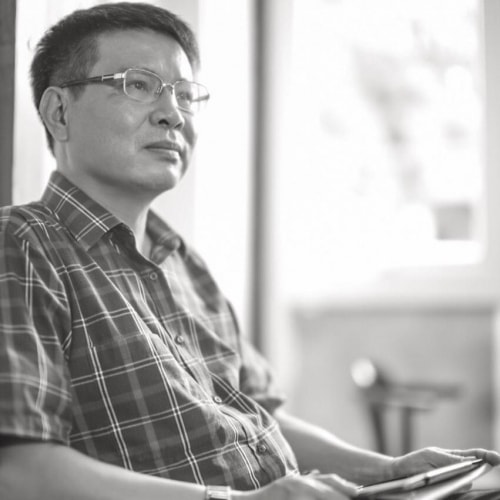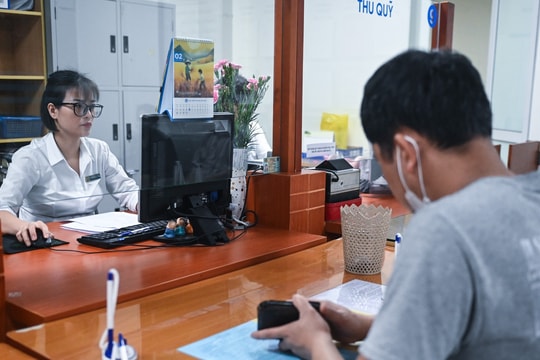Ten proposals for the new Minister of Education and Training
Eliminating equalization in education, eliminating textbook monopoly, popularizing English, developing vocational training... are the proposals of Dr. Luong Hoai Nam sent to the new Minister of Education Phung Xuan Nha.
The new government of Prime Minister Nguyen Xuan Phuc has just taken office with 21 Ministerial-level members. Immediately, many "orders" for the new Minister of Education and Training Phung Xuan Nha appeared in the press and social networks. This shows that people and experts have many concerns and frustrations with the current state of education in our country.
 |
| Dr. Luong Hoai Nam. |
The phrase "educational refugees" has been mentioned many times, even in the National Assembly. As a citizen with two children who were sent to Singapore and the UK to study since high school, and who knows quite well about education in both Vietnam and these countries, I would like to propose the following ten contents to the new Minister of Education.
The first,It is necessary to eliminate the leveling of students in terms of educational content. When my children studied in Singapore and the UK, the first thing that surprised us was that the number of subjects was reduced by half. They only studied 6 subjects instead of 12, of which 3 were compulsory for the stream they chose, 3 were completely optional. The reason is that both the UK and Singapore stream education right after 6 years of primary school. Germany streams even earlier - after grade 4. China, like the UK, streams after grade 6. That is also the general spirit of the UNESCO International Standard Classification of Education (ISCED 1997 and 2011).
Each student has different qualities and conditions. Society also needs people to do different jobs. "Fish" need to focus on learning to swim, be evaluated by their swimming ability and go out swimming. "Birds" need to focus on learning to fly, be evaluated by their flying ability and go out flying. "Fish" and "birds" cannot be taught (and evaluated) with the same educational content throughout 12 years of schooling.
Monday,It is necessary to eliminate the leveling of school models among schools. It is necessary to avoid replacing one stereotype with another. The world has many good school models, some of which are being applied in international schools in Vietnam. Although VNEN is better than the traditional school model in our country, do not forget that "Escuela Nueva" is only a school model for rural and mountainous areas in Colombia since the 70s of the last century.
In the cities of Colombia, past and present, there are other school models. Outside of Latin America, only Vietnam and the Philippines implement the "Escuela Nueva" model and so we need to be cautious. Let the schools (at least the private schools) choose the school model based on the minimum requirements set by the Ministry of Education. Let the school models compete with each other.
Tuesday,It is necessary to eliminate the leveling between localities in terms of educational programs. There cannot be an educational program that is both best for Hanoi and best for Ha Giang, because the conditions and needs of these localities are too different. The common practice in the world is for the Ministry of Education to prescribe minimum standards of knowledge and skills, and localities to develop their own educational programs. If a locality does not have enough resources and experience to do this, it can hire consultants, use programs from other localities, or use the reference educational program of the Ministry of Education.
Wednesday,It is necessary to really eliminate the textbook monopoly. This issue has basically been agreed upon, but implementation is still very difficult, not without "technical barriers". Singapore has 14 publishers participating in publishing and trading textbooks, the Ministry of Education reviews and approves textbook sets in a neutral manner. The role in eliminating the textbook monopoly belongs to the publishers and textbook authors working with them, not the Ministry. Publishers are not required to provide the entire textbook set for all subjects and levels. The choice of textbooks from which publisher is the right of each school (as proposed by the department).
Thursday,English needs to be popularized in the era of globalization. In Malaysia's new general education program for the period 2013-2025 (supported by UNESCO and OECD), English is no longer considered a "foreign language", but a "second language". English proficiency among Vietnamese students is disappointing, most Vietnamese youth cannot use English fluently after 12 years of high school and 3-5 years of college and university. It is necessary to make English a compulsory foreign language, from primary school to university; other languages are considered second and third foreign languages... If you are poor at English, it will be very difficult to integrate internationally.
Friday,Vocational training needs to be strongly developed. In line with the education streaming policy, countries with advanced education pay great attention to vocational training. Vocational training is an inseparable part of the national education system. Some countries have this education system after primary school and most countries strongly develop vocational training after junior high school. The largest in Singapore is not a university, but ITE (Institute of Technical Education, a vocational secondary school), with about 40,000-45,000 students, enrolling about 25,000 students each year.
On average, in OECD, the number of people with college and university degrees between the ages of 25 and 64 is only 32%. Our country should transfer vocational training from the Ministry of Labor to the Ministry of Education to unify the national education system and strongly develop vocational training; no other country separates vocational training from the Ministry of Education like our country.
Saturday,It is necessary to shorten the training time through streaming and transfer. Because there is no streaming, Vietnamese students have to study longer. To finish college, students must finish 12 years of high school, 3 years of college, making 15 years, and start working at the age of 22. To finish university, the total study time is 16-17 years, and start working at the age of 23-24. In Singapore, to finish college, the total study time is only 13 years and start working at the age of 20, 2 years earlier than in Vietnam. To finish university, the total study time is 15 years, 1-2 years shorter than in Vietnam. Many students in Singapore study university transfer, with 3 years of college plus 1-2 years of university and go to work with a university degree at the age of 21-22. In Germany, if you follow the vocational college stream, it is not necessary to study all 12 years of high school like in our country, but only need to finish grade 9 or 10.
Eighth,We need to innovate tutoring. Tutoring is a need and if done correctly, it is very good for the development of education. The problem is, as in Korea and Japan, tutoring must be organized independently from formal education. Each teacher can only teach in one system, not teach at school, teach at a center or at home. The purpose of tutoring and tutoring must be for the real needs of students, not to solve the need to improve the income of teachers in the regular system.
Separating formal education and private tutoring is necessary, with a roadmap of 3-5 years, after which it is unacceptable for teachers to be "half-in, half-out". It is necessary to improve the income of teachers in the formal education system, but not by combining private tutoring. Good exam preparation teachers can boldly leave the school system to specialize in exam preparation.
Ninth,It is necessary to innovate examinations and admissions. The improvement of examinations and admissions in the past time is necessary, but it is also necessary to stabilize this field as soon as possible. There is no country that changes the way of examinations and admissions every year like Vietnam. The world has two good methods of examinations and admissions: "centralized" British style (applied by Singapore and Australia, with the leading role of the Ministry of Education) and "distributed" American style (based on SAT and ACT results, with the decisive role and additional admission conditions of each school). Our country should study carefully and choose a method to make it synchronous and sustainable.
Tenth,It is necessary to retrain and significantly upgrade the quality of teachers and lecturers. This is the biggest and most difficult problem, deciding the success or failure of all efforts to reform education. There is no other way but to re-regulate significantly higher knowledge and skill standards for teachers and have a plan and program to retrain and upgrade the qualifications of teachers and lecturers with a roadmap of 3-5 years. Teachers and lecturers who, after being retrained, still do not meet the knowledge and skill standards must be eliminated. We cannot successfully reform education with substandard teachers.
According to VNE





.jpg)


